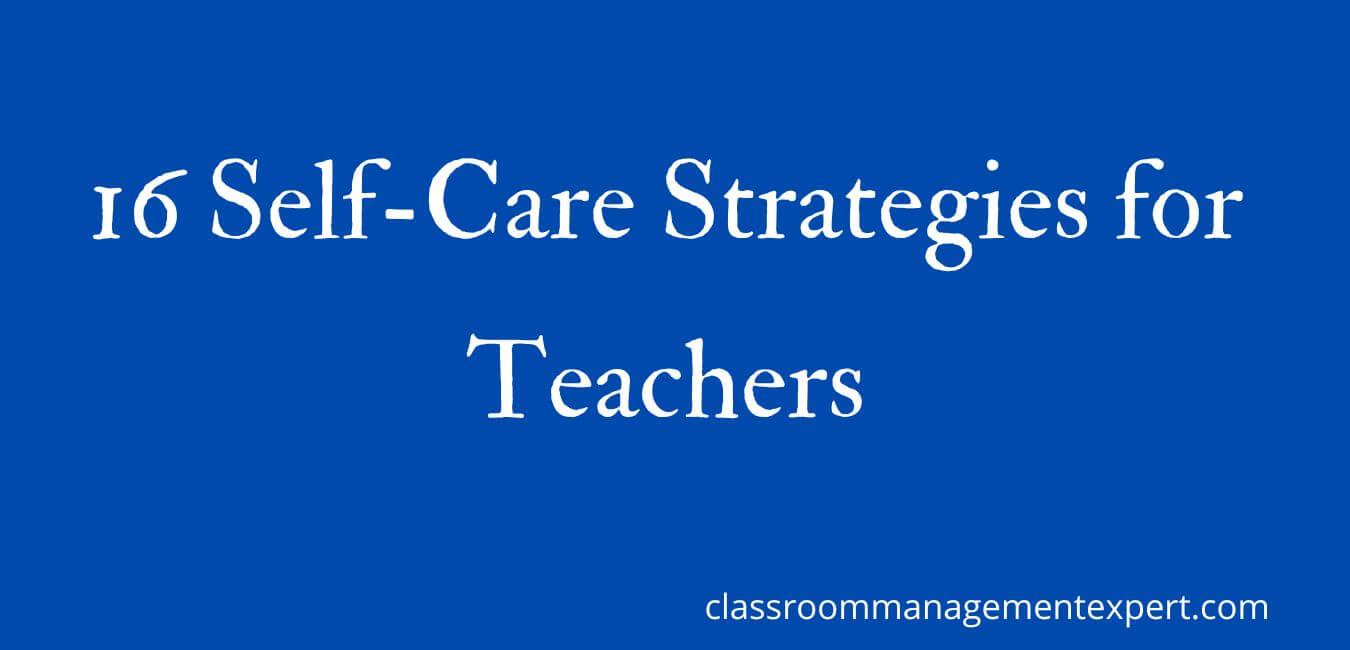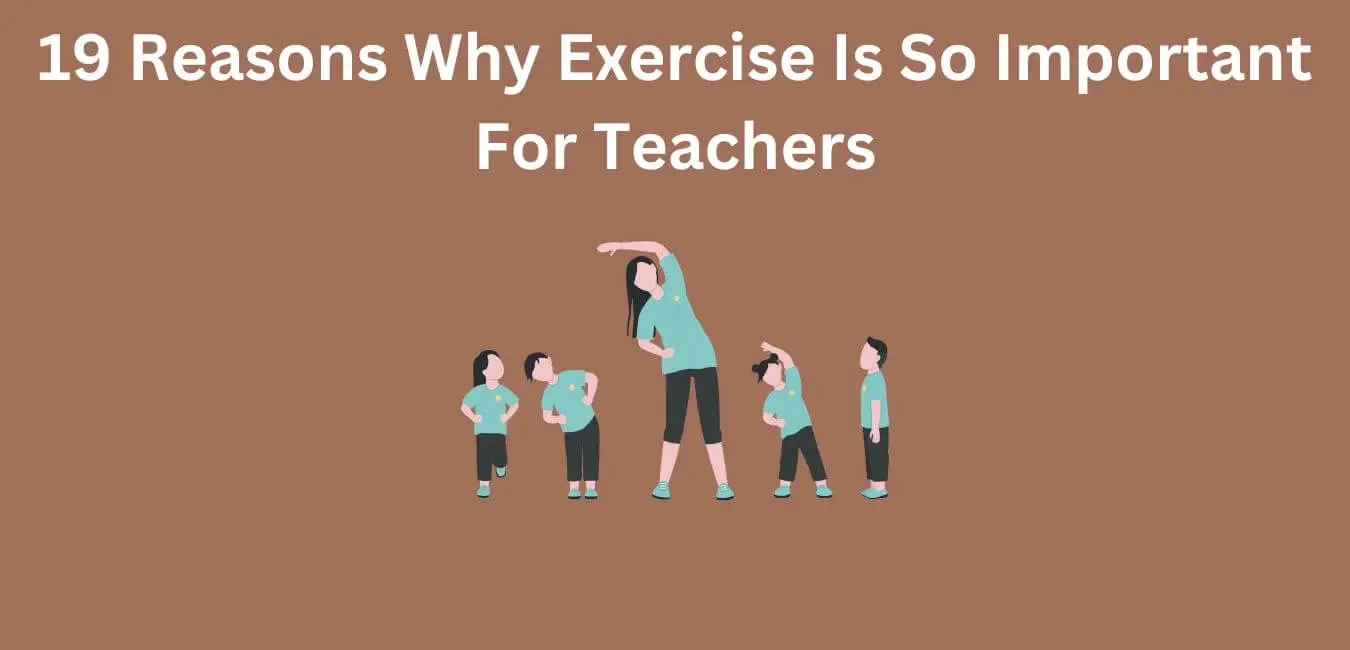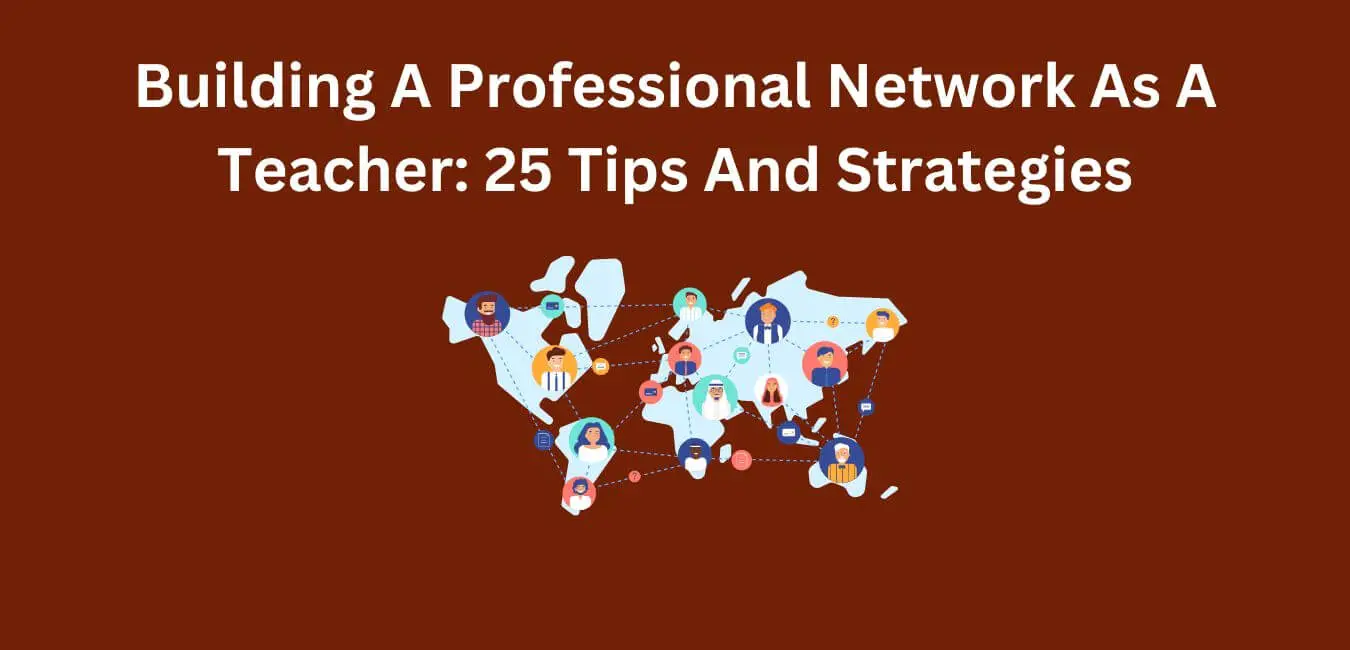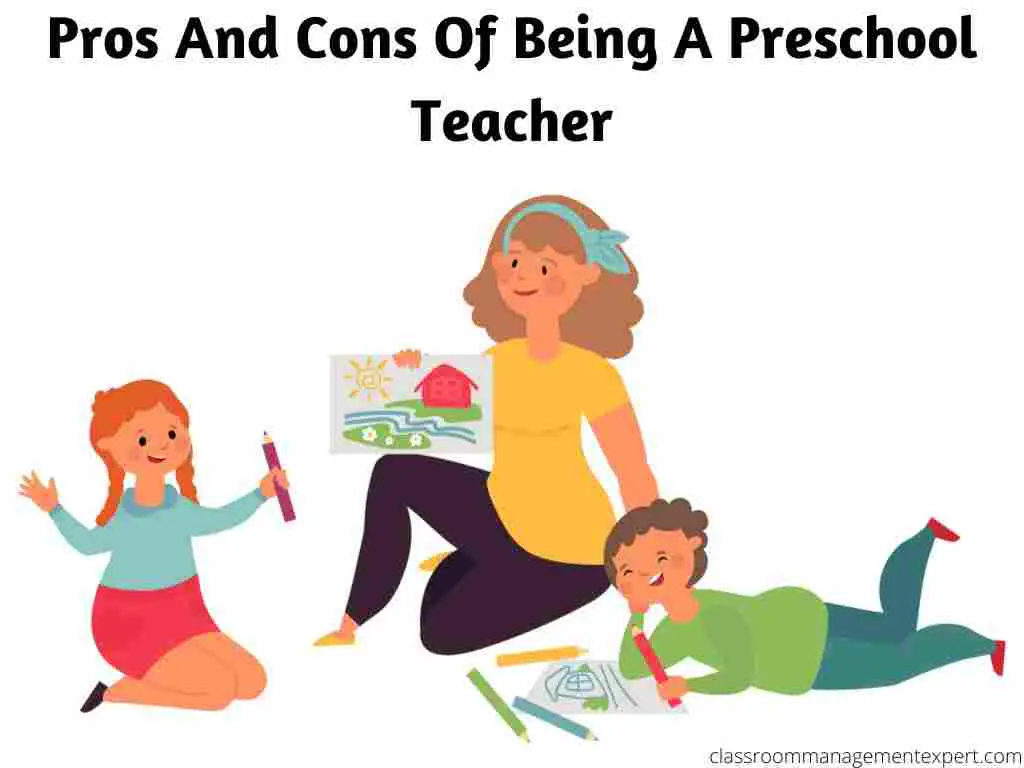
Feeling like a ship drifting in unexplored waters? That’s how stepping into a classroom as a fresh-faced teacher can often feel. Believe me – I’ve walked the same path, navigated those same choppy waves of new challenges from deciphering clever classroom management tactics to striking that elusive work-life balance harmony.
Oh boy, it can truly seem overwhelming at times! Yet fear not: to help make your maiden voyage smoother and more rewarding, this article is packed with sage advice on common struggles new teachers face.
And we don’t stop there – we’ll also provide you with strategic life rafts for overcoming these hurdles and spotlight nine essential factors to keep in mind while wrestling these seas of challenges.
So tighten up those lifejackets everyone, let’s plunge right in and chart our course toward success from day one!
Key Takeaways
- Lack of experience can make it challenging for new teachers to navigate the classroom and meet students’ individual needs.
- Classroom management is a common struggle for new teachers, but setting clear expectations, building relationships with students, and seeking support from experienced colleagues can help overcome this hurdle.
- Balancing workload and personal life is important for new teachers to avoid burnout. Setting realistic goals, managing time effectively, and prioritizing self-care are key strategies.
- Dealing with difficult students requires empathy and understanding. Building positive relationships, implementing clear expectations, and seeking advice from colleagues or counselors can help manage challenging behaviors.
Reasons Why New Teachers Struggle
New teachers struggle for various reasons such as lack of experience, difficulties with classroom management, balancing workload and personal life, dealing with difficult students, limited resources and support, maintaining student engagement, managing time effectively, addressing diverse student needs, handling parent and community expectations, coping with stress and burnout, building relationships with colleagues, adapting to curriculum and instructional changes, as well as understanding and meeting assessment requirements.
Lack of experience
As a new teacher, having less experience can be tough. You are taking your first steps in running a classroom. It might feel like you’re lost at sea. You may face issues that you didn’t cover during training.
One big challenge is dealing with students’ different learning styles and needs. It’s hard to know what works best without practice! Trying to create lesson plans that keep everyone engaged is not easy either.
But don’t worry too much! As time passes, you’ll learn more every day about teaching and your students’ unique needs.
Classroom management difficulties
When it comes to being a new teacher, one of the biggest challenges I faced was classroom management. It can be tough to keep students engaged and focused, especially when dealing with behavior issues.
Without effective strategies in place, it becomes even harder to create a positive learning environment for everyone. Studies show that good classroom management is essential for student success and teacher effectiveness.
As a new teacher, I quickly learned the importance of setting clear expectations and rules from day one. Consistency is key in enforcing these expectations and addressing disruptive behaviors promptly.
Building relationships with students also plays a significant role in managing the classroom effectively. When students feel valued and respected, they are more likely to cooperate and behave appropriately.
Seeking support from experienced colleagues or mentors can provide valuable insights into effective classroom management techniques, as well as attending professional development opportunities focused on this area.
Balancing workload and personal life
Balancing your workload as a new teacher can be challenging, but it’s important to make time for your personal life too. As teachers, we often have many responsibilities and tasks that need our attention.
However, it’s crucial to find a balance so that we can take care of ourselves and avoid burnout.
One way to balance your workload and personal life is by setting realistic goals and priorities. Take some time at the beginning of each week to identify the most important tasks that need to be done and focus on those first.
This will help you stay organized and prevent feeling overwhelmed.
Another strategy is to manage your time effectively. Break down larger tasks into smaller, more manageable ones. Set aside specific times for grading papers or planning lessons so that you can allocate enough time for both work and personal activities.
It’s also important to practice self-care and prioritize your well-being. Make sure you are getting enough sleep, eating nutritious meals, and engaging in activities that bring you joy outside of work.
Dealing with difficult students
Dealing with difficult students can be a challenge for new teachers. It’s important to remember that their behavior may be influenced by various factors, such as personal problems or learning difficulties.
As a teacher, it’s crucial to approach these situations with empathy and understanding. Building positive relationships with students and creating a safe and supportive classroom environment can help in managing difficult behaviors.
Implementing clear expectations and consistent consequences will also contribute to maintaining discipline in the classroom. Additionally, seeking advice from experienced colleagues or school counselors can provide valuable insights and strategies for dealing with challenging student behaviors.
Limited resources and support
As a new teacher, limited resources and support can make it challenging to meet the needs of your students. It can be frustrating when you don’t have access to the necessary materials or technology that could enhance learning in your classroom.
Additionally, lack of support from colleagues or administrators can leave you feeling isolated and unsure of how to navigate the demands of teaching. However, it’s important to remember that there are strategies you can use to overcome these obstacles.
Seek out professional development opportunities where you can learn new teaching techniques and connect with other educators who may be able to offer advice or resources. Utilize the resources available within your school or district, such as textbooks or online platforms, and find creative ways to engage your students even without fancy equipment.
Maintaining student engagement
Maintaining student engagement is essential for creating a positive and effective learning environment. As a new teacher, I understand the challenges of keeping students interested and motivated in the classroom.
One way to promote student engagement is by using active learning strategies that encourage participation and collaboration. For example, incorporating group projects or hands-on activities can help students stay focused and invested in their learning.
Another important aspect is relevance – connecting the lessons to real-life situations or personal experiences can make the content more meaningful for students. Additionally, providing regular feedback and recognizing their achievements helps to boost confidence and keep them engaged.
Managing time effectively
Managing time effectively is a vital skill for new teachers. As a teacher, I understand the demands and responsibilities that can make it challenging to stay organized and prioritize tasks.
However, by implementing strategies such as setting clear goals, creating schedules, and breaking down tasks into manageable chunks, we can make the most of our time in the classroom.
It’s also essential to minimize distractions and utilize technology tools that can help us streamline our workflow. By managing our time effectively, we can reduce stress and ensure that we have enough time for lesson planning, grading assignments, collaborating with colleagues, and taking care of ourselves.
Addressing diverse student needs
As a new teacher, one of the challenges you may face is addressing the diverse needs of your students. Every student is unique and has different abilities, learning styles, and backgrounds.
It’s important to create an inclusive classroom environment where all students feel valued and supported.
To address diverse student needs, start by getting to know your students as individuals. Take the time to learn about their interests, strengths, challenges, and cultural backgrounds.
This will help you tailor your teaching strategies to meet their specific needs.
Incorporate different instructional approaches in your lessons to accommodate various learning styles. Use visual aids, hands-on activities, group work, and technology tools to engage students with different preferences.
Handling parent and community expectations
Handling parent and community expectations is a crucial aspect of being a new teacher. Parents and the community expect you to provide a high-quality education for their children and be responsive to their needs.
It’s important to establish open lines of communication with parents, regularly update them on student progress, and address any concerns they may have. Building positive relationships with parents can help create a supportive learning environment for students.
Additionally, involving the community in school activities and seeking their input can foster a sense of collaboration and shared responsibility for student success. By working closely with parents and the community, you can build trust, strengthen partnerships, and enhance your effectiveness as an educator.
Coping with stress and burnout
As a new teacher, coping with stress and burnout is essential for maintaining your well-being and effectiveness in the classroom. It’s important to prioritize self-care and implement strategies that help manage stress levels.
Take breaks throughout the day to relax and recharge, engage in activities that bring you joy outside of work, and establish boundaries between your personal and professional life.
Seeking support from colleagues or joining a teacher support group can also provide valuable resources and outlets for sharing experiences. Remember that taking care of yourself is just as important as taking care of your students, so make sure to prioritize your mental health and well-being.
Building relationships with colleagues
As a new teacher, building relationships with colleagues is essential for professional growth and support. By connecting with your fellow teachers, you can learn from their experiences and gain valuable insights.
Collaborating with colleagues allows you to share ideas, resources, and teaching strategies that can enhance your classroom practices. It also creates a sense of camaraderie and support within the school community, making it easier to navigate challenges together.
Building positive relationships with colleagues can lead to opportunities for mentorship and guidance, as well as collaboration on projects or initiatives. Remember, we are all in this together, so reaching out to build relationships with your colleagues is key to overcoming the struggles faced by new teachers.
Adapting to curriculum and instructional changes
As a new teacher, one of the challenges you may face is adapting to curriculum and instructional changes. Education is constantly evolving, and as a result, curriculum and instructional methods are regularly updated.
This can be overwhelming for new teachers who are still learning the ropes. It’s important to stay informed about any changes that occur in your district or school and be open to trying new strategies and approaches in the classroom.
Remember that ongoing professional development opportunities can help you stay up-to-date with these changes and provide you with the necessary tools to adapt your teaching practices accordingly.
Understanding and meeting assessment requirements
As a new teacher, understanding and meeting assessment requirements is an important part of your role. Assessments help measure students’ progress and inform instructional decisions.
To meet these requirements, it’s crucial to familiarize yourself with the assessments used in your district or school. This includes knowing the different types of assessments, such as formative (to monitor student learning) and summative (to evaluate student achievement).
It’s also important to understand how to administer and score assessments accurately. By having a clear understanding of assessment requirements, you can effectively track your students’ progress and provide them with the support they need to succeed.
Ways to Overcome Struggles as a New Teacher
To overcome the struggles as a new teacher, seek mentorship, attend professional development opportunities, collaborate with colleagues, and develop a strong support network. Click here to discover more strategies for success in your teaching journey.
Seek mentorship and guidance
One of the best ways to overcome struggles as a new teacher is to seek mentorship and guidance. Finding an experienced teacher who can serve as a mentor and offer advice, support, and resources can be incredibly valuable.
They can provide insights into effective teaching strategies, help navigate challenging situations in the classroom, and offer encouragement during difficult times.
A mentor can also share their experiences and lessons learned, helping new teachers avoid common pitfalls and make informed decisions. They can offer guidance on classroom management techniques, student engagement strategies, and curriculum development.
Furthermore, seeking mentorship allows new teachers to build relationships with colleagues and establish a support network within their school or district. This network can provide emotional support, a sounding board for ideas or concerns, and opportunities for collaboration.
Attend professional development opportunities
To overcome the struggles of being a new teacher, it’s important to attend professional development opportunities. These programs offer valuable training and resources that can enhance your teaching skills and knowledge.
By participating in workshops and seminars, you can learn about effective instructional strategies, classroom management techniques, and ways to engage students. Professional development also allows you to stay up-to-date with curriculum changes and educational trends.
Taking advantage of these opportunities shows your commitment to continuous learning and improvement as an educator.
Collaborate with colleagues
Collaborating with colleagues is essential for new teachers to overcome their struggles in the classroom. By working together, we can share our experiences, exchange ideas, and learn from one another.
Collaboration allows us to benefit from the expertise of our peers and gain valuable insights into effective teaching strategies. It also creates a supportive network that we can rely on for guidance and encouragement.
When we collaborate with colleagues, we have the opportunity to engage in meaningful discussions about curriculum, instructional methods, and student needs. This collaboration helps us enhance our teaching practices and improve student outcomes.
Develop a strong support network
As a new teacher, it is important to develop a strong support network. Surrounding yourself with colleagues who can offer guidance and advice can make a big difference in overcoming the struggles you may face.
By connecting with experienced teachers, you can gain valuable insights and learn from their experiences. Additionally, having supportive supervisors who provide feedback and encouragement is crucial for your growth as an educator.
Don’t underestimate the power of collaboration. Working together with your colleagues allows you to share ideas, resources, and strategies that have been successful in the classroom.
Collaborating also provides opportunities for professional development, as you can learn from each other’s strengths and areas for improvement.
Remember that building relationships with others in your school community is key to developing a strong support network. Attend staff meetings, participate in school events, and engage in conversations outside of the classroom to connect with your fellow educators.
Set realistic goals and prioritize tasks
Setting realistic goals and prioritizing tasks is essential for new teachers to overcome their struggles. Here are some strategies that can help:
- Start by identifying your long-term and short-term goals as a teacher.
- Break down these goals into smaller, manageable tasks.
- Prioritize your tasks based on urgency and importance.
- Create a schedule or to-do list to keep track of your tasks.
- Focus on one task at a time rather than trying to do everything at once.
- Celebrate small victories along the way to stay motivated.
- Be flexible and adjust your goals as needed.
- Seek support from colleagues or mentors in creating realistic goals.
- Learn to say no to unnecessary tasks or requests that may distract from your priorities.
Reflect on and learn from experiences
Reflecting on and learning from experiences is an important part of growing as a teacher. Here are some tips to help you make the most of your experiences in the classroom:
- Take time to think about what went well in your lessons and what could be improved. Consider the strategies that worked and the ones that didn’t.
- Seek feedback from colleagues or mentors who can provide valuable insights and suggestions for improvement.
- Keep a journal or reflection log where you can document your thoughts, ideas, and observations. This will help you track your progress over time.
- Attend professional development workshops or conferences where you can learn from experienced educators and gain new insights into teaching practices.
- Collaborate with colleagues to share best practices, brainstorm ideas, and problem-solve together. Learning from others can greatly enhance your own teaching repertoire.
- Embrace a growth mindset and view challenges as opportunities for learning and growth. Instead of getting discouraged by setbacks, use them as motivation to improve.
- Stay up-to-date with current research in education and incorporate evidence-based practices into your teaching. This will ensure that you are using the most effective strategies with your students.
- Continually seek out new educational opportunities, whether it’s attending webinars, taking online courses, or joining professional organizations. Lifelong learning is key to becoming a successful teacher.
Practice self-care and stress management
As a new teacher, it’s important to prioritize self-care and manage stress effectively. Here are some strategies that can help:
- Take breaks throughout the day to recharge and relax.
- Practice deep breathing or mindfulness exercises to reduce stress levels.
- Engage in physical activity or exercise regularly to boost mood and energy.
- Set aside time for hobbies and activities that bring you joy and help you unwind.
- Seek social support from friends, family, or fellow teachers who can provide encouragement and understanding.
- Create a daily routine that includes healthy eating, enough sleep, and proper hydration.
- Learn to say no when necessary and set boundaries to prevent feeling overwhelmed.
- Use positive affirmations or self – talk to build confidence and resilience.
- Find healthy ways to cope with setbacks or challenges by seeking support from mentors or counselors if needed.
Utilize available resources and technology
As a new teacher, it’s important to utilize the resources and technology available to you. There are many tools and materials that can support your teaching and help overcome the struggles you may face in the classroom.
First, make use of online resources such as educational websites, lesson plan databases, and teaching blogs. These platforms offer a wealth of ideas, activities, and materials that can enhance your lessons and engage your students.
Additionally, explore the technology options available in your school or district. This could include interactive whiteboards, tablets or laptops for students, educational apps or software programs.
Integrating technology into your teaching can make lessons more interactive and dynamic for your students.
Remember to also seek guidance from more experienced teachers who have been through similar challenges. They can provide valuable advice on effective strategies and share their own experiences.
Communicate effectively with students, parents, and administrators
As a new teacher, it is essential to communicate effectively with your students, parents, and administrators. Clear and open communication helps build positive relationships and fosters a supportive learning environment.
When talking to students, use simple language, listen actively, and encourage questions. Keep parents informed about their child’s progress through regular updates and parent-teacher conferences.
Collaboration with administrators is crucial for understanding expectations and receiving guidance. Remember that effective communication involves active listening, providing constructive feedback, and being approachable to create a successful teaching experience for everyone involved.
Embrace a growth mindset
To overcome the struggles of being a new teacher, it is important to embrace a growth mindset. This means believing that your abilities can improve with effort and learning from challenges.
Understand that you may not have all the answers right away, but that’s okay. See each obstacle as an opportunity for growth and learning. Seek feedback from experienced teachers or mentors and use it to improve your teaching skills.
Remember that mistakes are part of the learning process, so don’t be too hard on yourself. Stay open-minded, be willing to adapt, and try new strategies in the classroom. By embracing a growth mindset, you can build confidence and continuously develop as an effective educator.
Seek feedback and continually strive for improvement
As a new teacher, it is essential to seek feedback and always look for ways to improve. Here are some strategies to help you in this process:
- Regularly ask for input from experienced colleagues or mentors.
- Reflect on your teaching practices and identify areas for growth.
- Actively seek out professional development opportunities to enhance your skills.
- Attend conferences or workshops that offer valuable insights into effective teaching methods.
- Join online communities or forums where you can connect with other educators and share experiences.
- Take advantage of feedback from students and parents to better understand their needs and perspectives.
- Keep up-to-date with research and best practices in education through reading books, articles, and journals.
- Embrace a growth mindset by being open to new ideas and approaches.
- Use self-assessment tools or rubrics to evaluate your progress as a teacher.
Stay organized and manage time efficiently
Managing time effectively is essential for new teachers to overcome the struggles they face in the classroom. By staying organized, you can ensure that all tasks and responsibilities are completed efficiently.
One way to do this is by creating a schedule or using a planner to map out your daily and weekly activities. This will help you prioritize tasks, set deadlines, and allocate time for lesson planning, grading papers, and other important duties.
Another helpful strategy is to break larger tasks into smaller manageable chunks. This allows you to work on them incrementally and prevents feeling overwhelmed. Additionally, make use of technology tools such as calendar apps or task management apps that can send reminders and help keep track of deadlines.
Furthermore, it’s important to establish routines and stick to them. For example, setting aside specific times each day for lesson planning or grading can increase productivity by providing structure and consistency.
Build rapport and establish positive relationships with students
Building rapport and establishing positive relationships with students is essential for creating a supportive and engaging classroom environment. As a new teacher, I understand the importance of connecting with my students on a personal level to promote their learning and overall well-being.
By taking the time to get to know each student individually, showing interest in their lives, and actively listening to them, I can build trust and create a safe space where they feel valued and respected.
This positive relationship allows me to better understand their unique needs, interests, strengths, and challenges, enabling me to tailor my instruction accordingly. Additionally, it encourages open communication between us, which fosters active participation in class discussions and promotes collaborative learning among peers.
Emphasize student engagement and active learning strategies
To overcome struggles as a new teacher, it is important to emphasize student engagement and active learning strategies. When students are actively engaged in their learning, they become more motivated and focused.
This can be done by incorporating hands-on activities, group work, and discussions into your lessons. Additionally, using technology such as interactive whiteboards or online tools can also enhance student engagement.
Research shows that when students are actively involved in the learning process, they develop a deeper understanding of the content and are more likely to retain information. So instead of just lecturing at your students, try to create opportunities for them to participate and interact with the material.
Adapt instruction to meet individual student needs
To be an effective teacher, it is important to adapt instruction to meet the individual needs of each student. This means recognizing that every student learns differently and may require different strategies or support to succeed.
By personalizing instruction, you can help students reach their full potential and ensure that no one gets left behind. Take the time to get to know your students on a personal level, understand their strengths and weaknesses, and tailor your lessons accordingly.
Use a variety of teaching methods, resources, and materials to cater to different learning styles. Regularly assess student progress and adjust your instruction as needed. Remember, when you adapt instruction to meet individual student needs, you are creating an inclusive classroom where all students can thrive.
Seek ongoing professional development and educational opportunities
As a new teacher, it’s important to continually seek opportunities for professional development and education. By doing so, you can stay updated on the latest teaching strategies and techniques that can support your growth in the classroom.
Attending workshops, conferences, and webinars can provide valuable insights from experienced educators and experts in the field. These opportunities allow you to learn new approaches to lesson planning, student engagement, and assessment methods.
Additionally, seeking ongoing professional development allows you to expand your skills and knowledge base, which ultimately benefits your students’ learning experiences. Remember, investing in your own education is an investment in both yourself and your students’ success.
Stay up-to-date with curriculum and instructional changes
It is crucial for new teachers to stay up-to-date with curriculum and instructional changes. Education is constantly evolving, and as a teacher, I need to adapt my teaching methods and content to meet the needs of my students.
This means staying informed about any updates or revisions to the curriculum that may occur. By doing so, I can ensure that I am providing my students with the most relevant and appropriate learning experiences.
Additionally, keeping up with instructional changes allows me to incorporate new strategies and techniques into my teaching practice, which can enhance student engagement and improve learning outcomes.
Factors to Consider When Trying to Overcome Struggles as a New Teacher
When trying to overcome struggles as a new teacher, there are several important factors to consider. These factors include personal resilience and perseverance, the support of school culture and leadership, access to professional development opportunities, effective communication and collaboration with colleagues, access to resources and materials, maintaining work-life balance and practicing self-care, ongoing reflection, and learning, advocating for help when needed, understanding and addressing individual student needs.
To learn more about these factors and how they can contribute to your success as a new teacher, continue reading.
Personal resilience and perseverance
As a new teacher, personal resilience and perseverance are essential qualities to develop. Teaching can be challenging, but it’s important to stay determined and bounce back from setbacks.
Building resilience means being able to adapt and remain positive even in difficult situations. It involves developing coping strategies for stress and finding ways to maintain your well-being.
Perseverance is about staying committed to your goals, even when faced with obstacles. Remember that teaching is a journey of continuous learning, and it’s okay to make mistakes along the way.
Supportive school culture and leadership
Supportive school culture and leadership play a crucial role in helping new teachers overcome their struggles. When school leaders create an environment that values collaboration, respect, and professional growth, it fosters a sense of belonging for new teachers.
This support can include mentorship programs, regular check-ins with administrators, and opportunities for professional development. Additionally, when school leaders prioritize teacher well-being and mental health, it helps to reduce stress and burnout among new teachers.
A positive school culture also encourages open communication between colleagues, allowing for the sharing of ideas and strategies to overcome challenges in the classroom. With supportive leadership that recognizes the unique needs of new teachers and provides resources and guidance, educators can thrive in their profession.
Professional development opportunities
As a new teacher, it’s important to take advantage of professional development opportunities. These opportunities help you learn new teaching strategies, gain insights from experienced educators, and stay updated on the latest research and best practices in education.
Professional development can include workshops, conferences, webinars, and online courses that focus on specific topics relevant to your needs as a teacher. By participating in these opportunities, you can enhance your skills and knowledge, which will ultimately benefit your students.
It’s also an excellent way to network with other teachers and build relationships with colleagues who can offer support and guidance along the way. Remember that professional growth is a continuous process throughout your career as an educator.
Effective communication and collaboration
To overcome struggles as a new teacher, it is crucial to focus on effective communication and collaboration. Building strong relationships with colleagues, administrators, students, and parents is key to creating a supportive and successful learning environment.
By communicating clearly and openly, teachers can address concerns, share ideas, and work together to overcome challenges. Collaboration allows for the exchange of knowledge and resources, promoting professional growth and improving instructional practices.
It also helps in identifying student needs more effectively so that teachers can provide targeted support. Effective communication and collaboration foster teamwork, enhance classroom management skills, promote shared responsibilities among staff members, and ultimately contribute to improved student outcomes.
Access to resources and materials
As a new teacher, having access to resources and materials is crucial for creating engaging and effective lessons. It can be challenging when you don’t have the resources you need.
Limited access to books, technology, and other materials can make it difficult to provide students with enriching learning experiences. However, there are ways to overcome this struggle.
Seek out professional development opportunities that offer ideas for low-cost or free resources. Collaborate with colleagues who may have materials they are willing to share or borrow from your school library.
Embrace technology as a tool for accessing online resources and educational websites. Don’t be afraid to reach out to administrators or district-level personnel if you feel there is a lack of necessary resources in your classroom or school.
Work-life balance and self-care
Maintaining a healthy work-life balance is essential for new teachers to avoid burnout and stay motivated. It’s important to prioritize self-care and make time for activities outside of work that bring joy and relaxation.
This can include exercising, spending time with loved ones, pursuing hobbies, or simply taking breaks to recharge. By setting boundaries and creating a routine that allows for personal time, teachers can better manage their workload while also nurturing their mental and physical well-being.
Remember that by taking care of yourself, you’ll be better equipped to support your students effectively in the long run.
Reflection and ongoing learning
As a new teacher, reflection and ongoing learning are essential for your professional growth and success in the classroom. Taking the time to reflect on your teaching practices allows you to identify areas of improvement and make necessary adjustments.
By reflecting on what worked well and what didn’t, you can refine your teaching strategies and better meet the needs of your students.
Continual learning is also crucial for staying updated with current research, best practices, and educational trends. It’s important to seek out professional development opportunities, attend workshops or conferences, and collaborate with colleagues to expand your knowledge base.
By continuously learning and applying new strategies in the classroom, you can enhance student engagement and improve instructional outcomes.
Remember that reflection doesn’t have to be a formal process – it can be as simple as jotting down notes at the end of each day or engaging in informal discussions with colleagues about lessons learned.
The key is to regularly reflect on your teaching practices so that you can continually grow as an educator. Embrace a growth mindset where you view challenges as opportunities for learning rather than failures.
Advocacy and seeking help when needed
Advocating for yourself and seeking assistance when you need it is crucial as a new teacher. Don’t be afraid to ask for help or guidance from more experienced colleagues or mentors.
Remember that everyone starts somewhere, and reaching out for support shows strength, not weakness. Additionally, take advantage of professional development opportunities and workshops offered by your school district or educational organizations to enhance your skills and knowledge.
By actively seeking help and advocating for your needs, you can overcome challenges more effectively and become a successful teacher in the long run.
Understanding and addressing individual student needs
As a new teacher, it’s important to understand and address the individual needs of your students. Every student is different and has unique strengths, challenges, and learning styles.
By taking the time to get to know each student personally, you can tailor your instruction and support to meet their specific needs.
One key factor in addressing individual student needs is understanding their background and experiences. Some students may come from diverse cultural or socioeconomic backgrounds that can impact their learning.
By acknowledging and valuing these differences, you can create an inclusive classroom environment where all students feel valued and supported.
Another important aspect is recognizing that students have different learning styles. Some may be visual learners who benefit from seeing information in charts or diagrams, while others may be auditory learners who prefer listening to explanations or discussions.
By providing a variety of instructional strategies and resources, you can accommodate different learning preferences and help all students succeed.
Additionally, it’s crucial to identify any academic or behavioral challenges that individual students may face. This could include learning disabilities, social-emotional difficulties, or language barriers for English language learners.
By working closely with support staff such as special education teachers or counselors, you can develop appropriate interventions and accommodations to help these students thrive.
Finally, building positive relationships with your students is essential in understanding their needs. Take the time to listen actively to their concerns and provide emotional support when needed.
FAQs
1. What are some reasons why new teachers struggle?
New teachers often struggle due to factors like lack of preparation, difficulties in classroom management, and dealing with the learning curve.
2. How can new teachers overcome their struggles?
New teachers can use strategies such as seeking out support systems for educators and focusing on resilience and performance improvement.
3. Can mental health affect a teacher’s success?
Yes, mental health issues can contribute to teacher stress and burnout affecting the success of new educators which is why it’s important to focus on supporting teachers’ mental health and wellbeing.
4. What role do students play in a teacher’s stress levels?
Classroom interruptions by students may reduce teacher productivity causing more stress so addressing these issues is crucial.
5. Do you have any tips for overcoming obstacles as a new teacher?
To cope with the demands of being a new teacher, practicing good classroom management techniques and addressing mental health issues promptly will help.
Conclusion
In conclusion, new teachers face many challenges in the classroom. From lack of experience to managing student behavior and balancing their workload, it’s a tough job. However, by seeking support from mentors, attending professional development opportunities, and prioritizing self-care, new teachers can overcome these struggles.
Factors such as personal resilience, supportive school culture, effective communication and collaboration, access to resources, work-life balance, continuous learning, and reflection are also essential in helping new teachers succeed.
With the right strategies and support systems in place, new teachers can thrive in their roles and make a positive impact on their students’ lives.


















